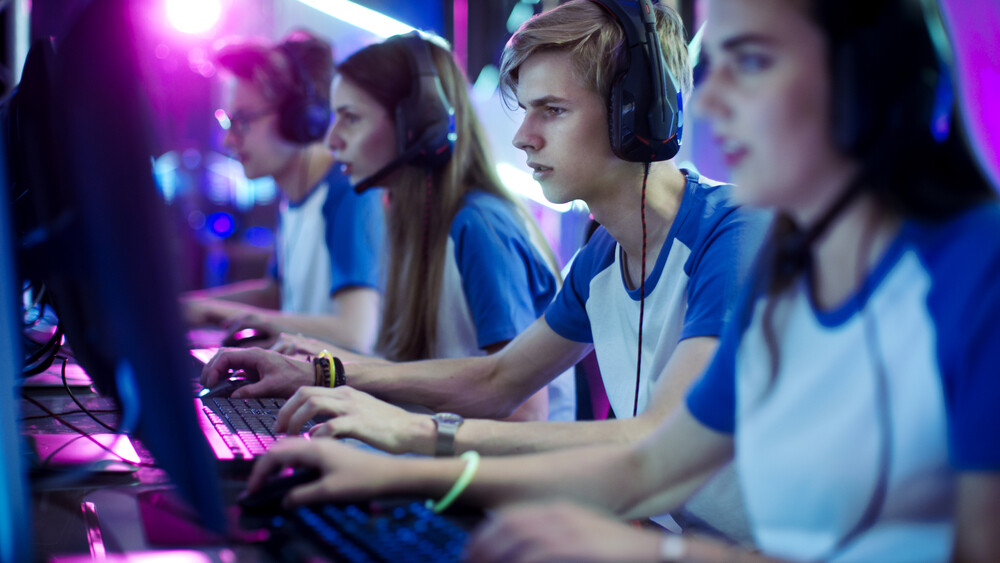When young people dive into the world of digital fantasy for hours on end, it’s not immediately worrying. Because many computer games train strategic thinking, memory and speed.
Ragnaros, the fire lord with the heat-swirling abdomen, buries his enemies under a wave of lava. Lunara, a green-maned Centauress, sends out thorny vines to defend herself against her enemies. And if you collect enough monster skulls, you can summon a pretty bad-tempered golem with them. Granted, the world of the computer game “Heroes of the Storm” is quite different from the real one. But if you slip into the roles of fairy dragons and skeleton kings in your spare time to measure your strength and abilities against other players, you will do almost the same as a highly concentrated chess player, despite the fantastic scenery. After all, complex computer games are not about blunt blasting away, but about figuring out clever strategy moves. Therefore, it can be called a sport when two teams of players compete against each other in this virtual world.
Esport – not a new invention!
ESport is the abbreviation for “electronic sport” and the collective term for all competitions that people do not compete on sports fields or in gymnasiums, but on computers or game consoles. Like in classical sports, in some of them you compete as a lone fighter and in others as a team. Most eSporters are found in South Korea, China and the USA.
Sounds like a pretty new invention? The history of electric gaming goes back further than one would spontaneously think. Already in the fifties there were first versions of checkers or chess, which could be played together on a computer. In 1958 William Higinbotham developed “Tennis for Two”, a simple tennis simulation. From the end of the seventies onwards, it was possible to compete with the best players in arcades, on home computers and consoles, free from a common game situation. As more and more people gained access to the Internet, you didn’t even have to be in the same place to compete in eSports. Thanks to the worldwide networking, global competitions were now also possible. In 2000 the first “World Cyber Games” (WCG) were held in Seoul. Today there are countless competitions worldwide, most of which are held by the manufacturers of the respective games.
Esport also requires regular training
Even with eSport you cannot avoid regular training if you want to be successful. The first thing you have to do is to get familiar with the computer game you want to play – and these games can be very complex and demanding.
In addition, an eSportsperson must also be mentally flexible: In challenging games, good spatial orientation and forward thinking helps to keep track of all tactical manoeuvres of your own and the opposing team. They must always keep their full attention on the game – and must not allow themselves to lose concentration. Motor skills are also important, for example the ability to react quickly. Professional eSportsmen and women often live together as a team in one house, have fixed training times, a captain who announces the next moves to the other team members via headsets, and a manager. These professional players finance themselves through sponsoring and advertising – and in the best case through prize money, which can sometimes reach a million dollars in the most important competitions.
Esport: More complicated than chess
To date, eSport is only recognized as a sport by established sports associations in a few countries such as the USA, China and France. In Germany this is still being discussed. Anyone who watches experienced players will quickly notice that games like “Heroes of the Storm” have nothing to do with dull doddling – you need an excellent, trained memory to memorize the 70 different characters with their special abilities, strengths and weaknesses in whose role you can slip as a player. The rules of move for the different chess pieces are much more manageable.

